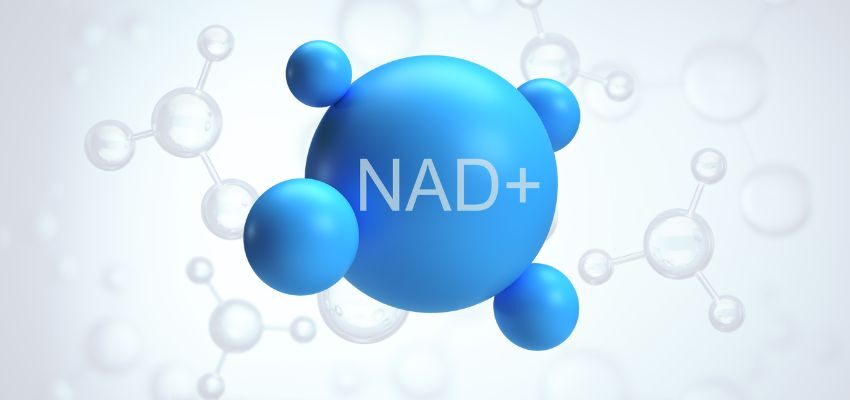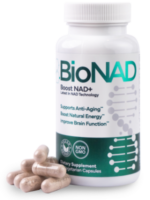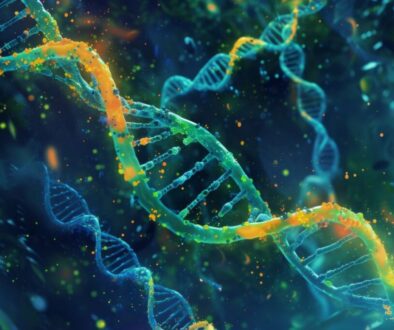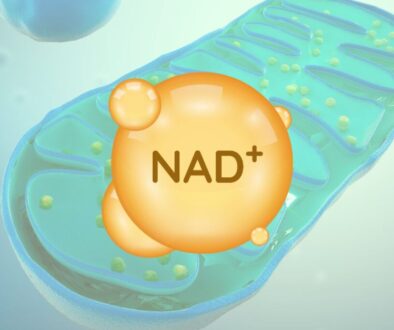Navigating The NAD+ Levels: A Guide For Beginners

Published July 10, 2024
Did you know there’s a molecule essential for your energy and cellular health? Nicotinamide adenine dinucleotide (NAD) is a crucial coenzyme in all living cells. Without adequate NAD, your body struggles with energy production, DNA repair, and cellular function. Are you getting enough?
In this article, we’ll examine the body’s NAD+ levels. Understanding NAD levels and their decline with age is essential. Knowing how to replenish them can promote health and longevity.
What Is The Role Of NAD+ In Metabolism?
NAD+ is crucial for metabolizing carbohydrates, proteins, and fats. It acts as an electron carrier in cellular respiration to produce ATP, cells’ primary energy currency. NAD+ also supports mitochondrial function and lengthens telomeres, which protect chromosomes and shorten with age.
Furthermore, it boosts the activity of SIRT1 and PARP1 proteins, linked to slower aging and DNA repair. Without adequate NAD+, cells struggle to convert nutrients into energy, reducing metabolic function.

What Is NAD?
NAD is a dinucleotide consisting of nicotinamide and adenine, connected by phosphate groups. It’s available in two forms: NAD+ (oxidized) and NADH (reduced). During metabolic reactions, NAD+ accepts electrons and becomes NADH.
NADH then allocates electrons to the electron transport chain to produce ATP. This cyclical conversion between NAD+ and NADH is vital for cellular energy production and metabolic health.
What Are The Normal NAD Levels By Age?
NAD levels can vary widely based on age and measurement units. Intracellular NAD concentrations usually fall between 10 and 1000 μM, while total NAD levels range from 0.3 to 0.4 μmol/g. Importantly, these levels progressively decline with age.
Aging factors, such as oxidative stress, lower NAD levels by reducing mitochondrial production and causing inflammation. Diminishing NAD levels are interconnected with aging and various diseases, including metabolic disorders, cancer, and neurodegenerative conditions.
Given NAD’s critical role in restoring and repairing the mind and body, its reduction can lead to numerous issues. One such problem is decreased autophagy, a cellular process that protects cell structures. Other concerns include impaired gene expression regulation and diminished mitochondrial biogenesis.

Benefits Of Healthy NAD Levels
Maintaining healthy NAD levels is crucial as they contribute to numerous vital bodily functions. Here are some key benefits:
- Energy Production. NAD supports the generation of adenosine triphosphate (ATP), which enhances overall energy levels and allows cells to perform their functions more efficiently. This can lead to augmented stamina and reduced fatigue, making everyday activities more straightforward to manage.
- DNA Repair. NAD activates enzymes called sirtuins and poly(ADP-ribose) polymerases (PARPs). These enzymes repair damaged DNA. This is crucial for preserving genetic integrity and preventing mutations that could lead to diseases, including cancer.
- Cognitive Function. NAD supports brain health by enhancing neuronal function and protecting against neurodegenerative conditions. This improves mental clarity, sharper cognitive function, and enhanced memory retention.
- Metabolic Health. Adequate NAD levels are crucial for efficient metabolism. They help convert nutrients from food into usable energy, supporting weight management and overall vitality. Proper NAD levels can also prevent metabolic disorders like obesity and diabetes.
- Cellular Protection. NAD boosts autophagy, a cellular housekeeping process that helps remove damaged components within cells. By promoting autophagy, NAD protects cell structures. It ensures cell longevity and proper function, critical for overall health and longevity.
Maintaining optimal NAD levels is essential. A healthy diet and regular exercise help. Supplementation may also be beneficial. The effects on overall well-being can be profound.
Natural Ways To Increase NAD+ Levels
NAD+ levels decline with age. However, they can be naturally replenished through several effective methods:
- Diet. Eating foods high in NAD precursors like tryptophan and niacin is crucial for healthy NAD+ levels. Great sources include chicken, turkey, tuna, salmon, and legumes. Adding these to your diet supports NAD+ production.
- Exercise. Regular physical activity significantly boosts NAD+ levels. Aerobic exercises like running, swimming, and cycling boost NAD+ production. Strength training also enhances the body’s ability to produce NAD+. Exercise stimulates metabolism and increases NAD+ demand, prompting the body to produce more.
- Fasting. Intermittent fasting can stimulate NAD+ production. Alternating between eating and fasting activates cellular repair and boosts NAD+ levels. Fasting promotes autophagy, clearing damaged cells and enhancing NAD+ biosynthesis.
- Supplements. Oral NAD+ supplements can boost NAD+ levels, but digestion may limit absorption. Although absorption rates vary, popular options include nicotinamide riboside (NR) and nicotinamide mononucleotide (NMN).
- IV Therapy. NAD+ IV infusions are highly effective. They deliver NAD+ directly into the bloodstream for complete absorption, bypassing the digestive system and ensuring immediate availability. IV therapy is ideal for rapid NAD+ replenishment and is often used in clinical settings to support recovery and wellness.
Frequently Asked Questions About NAD+ Levels
Is NAD safe to use?
When administered correctly, NAD is generally well-tolerated with rare side effects. Common side effects are minimal, such as mild nausea or fatigue. Following guidelines and seeing a medical professional before starting any new treatment is crucial. A healthcare provider can monitor your response and make changes to keep things safe and effective.
Is NAD suitable for me?
Seeing a healthcare professional is crucial. They’ll help you decide if NAD supplements are right for you. Your doctor can assess your health, review existing conditions and advise on the correct dosage.
Can NAD enhance metabolic function?
Yes, NAD supports anti-aging. It aids DNA repair, cuts oxidative stress, and boosts mitochondria, which help slow down aging. Maintaining healthy NAD levels supports cell repair and protects against age-related decline, promoting longevity and vitality.
Can NAD enhance brain health and function?
NAD is believed to have neuroprotective effects, enhancing cognitive function, memory, and overall brain health. It supports neurotransmitter production and protects against cell damage, keeping neurons and synapses healthy. This can help boost mental clarity and focus and protect against neurodegenerative diseases.

Elevate Your Well-Being: The Power Of NAD+ Levels
Maintaining healthy NAD levels is crucial for wellness. It enhances energy production and cognitive function and supports anti-aging processes. Various methods can help sustain optimal NAD levels, such as diet, exercise, and NAD supplementation or IV therapy. These practices lead to improved health and longevity. Always consult a healthcare professional to find the best approach for your needs. Take charge of your health today and discover how optimizing NAD levels can transform your life!

Try BioNAD Now & Experience The Boost!
NAD+ (Nicotinamide Adenine Dinucleotide) is a crucial coenzyme found in every cell of your body, playing a vital role in cellular energy production and metabolism. BioNAD supplements aim to elevate your NAD+ levels, providing numerous health benefits.

About The Author
Meet Corinne Grace, a nurse with a passion for writing. Her expertise lies in health and wellness topics, where she blends academic knowledge with engaging story telling.

This Content Has Been Reviewed For Factual Accuracy
This content has undergone thorough fact-checking by our team of experts. Learn more about the editorial standard for our website here.




